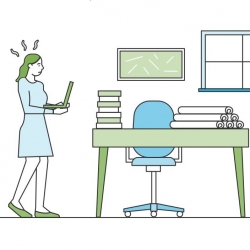March 15, 2023
The UK workplace sector reacts to the Spring Budget 2023
 Today the UK’s Chancellor of the Exchequer, Jeremy Hunt presented his Spring Budget to the House of Commons. In it he announced what her referred to as his ‘four pillars’ of industrial and productivity strategy, namely: ‘Enterprise’, ‘Employment’, ‘Education’, and ‘Everywhere’. Perhaps the headline element of this announcement was the creation of twelve new investment zones across the UK as well as incentives for older workers to return to the country’s patchy workforce. This includes£63m for programmes to encourage retirees over 50 back to work, “returnerships” and ‘skills boot camps’. Another headline for the workplace sector was the offer of improved childcare arrangements, especially for the parents of very young children, who will see 30 hours of free childcare expanded to include one and two-year-olds. (more…)
Today the UK’s Chancellor of the Exchequer, Jeremy Hunt presented his Spring Budget to the House of Commons. In it he announced what her referred to as his ‘four pillars’ of industrial and productivity strategy, namely: ‘Enterprise’, ‘Employment’, ‘Education’, and ‘Everywhere’. Perhaps the headline element of this announcement was the creation of twelve new investment zones across the UK as well as incentives for older workers to return to the country’s patchy workforce. This includes£63m for programmes to encourage retirees over 50 back to work, “returnerships” and ‘skills boot camps’. Another headline for the workplace sector was the offer of improved childcare arrangements, especially for the parents of very young children, who will see 30 hours of free childcare expanded to include one and two-year-olds. (more…)









 The leadership pipeline for women has hollowed out in the middle, according to a new study “
The leadership pipeline for women has hollowed out in the middle, according to a new study “












 Building on the success of its launch event, the Evening Standard’s SME XPO 25-26 April 2023 at ExCeL London, once again invites founders, entrepreneurs and business leaders to attend an action-filled
Building on the success of its launch event, the Evening Standard’s SME XPO 25-26 April 2023 at ExCeL London, once again invites founders, entrepreneurs and business leaders to attend an action-filled 









March 3, 2023
Artificial intelligence could mean we all do more work, not less
by Barbara Ribeiro • Comment, Technology